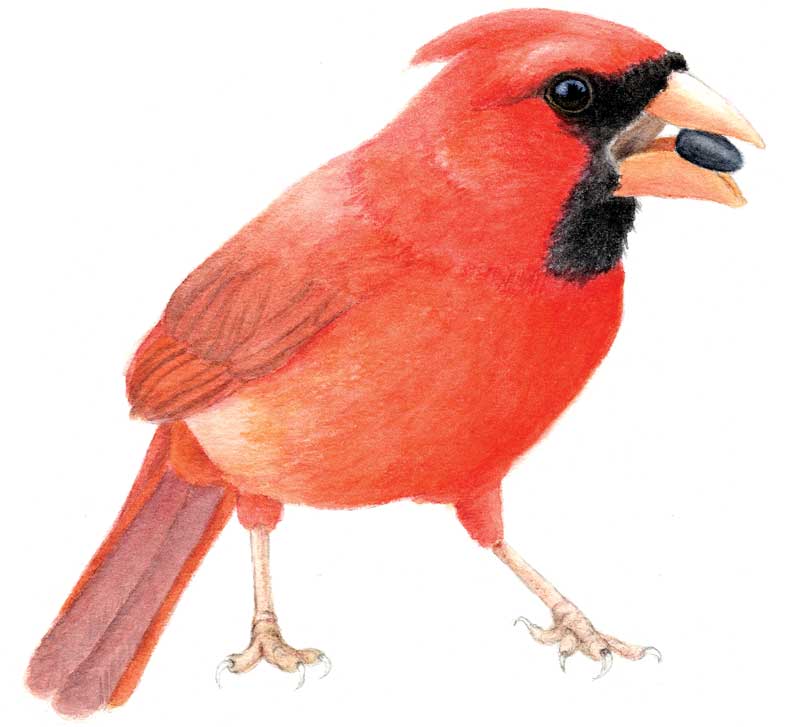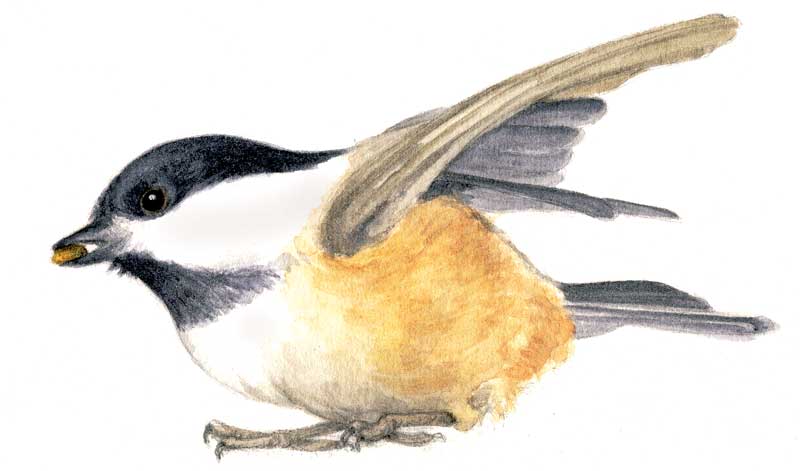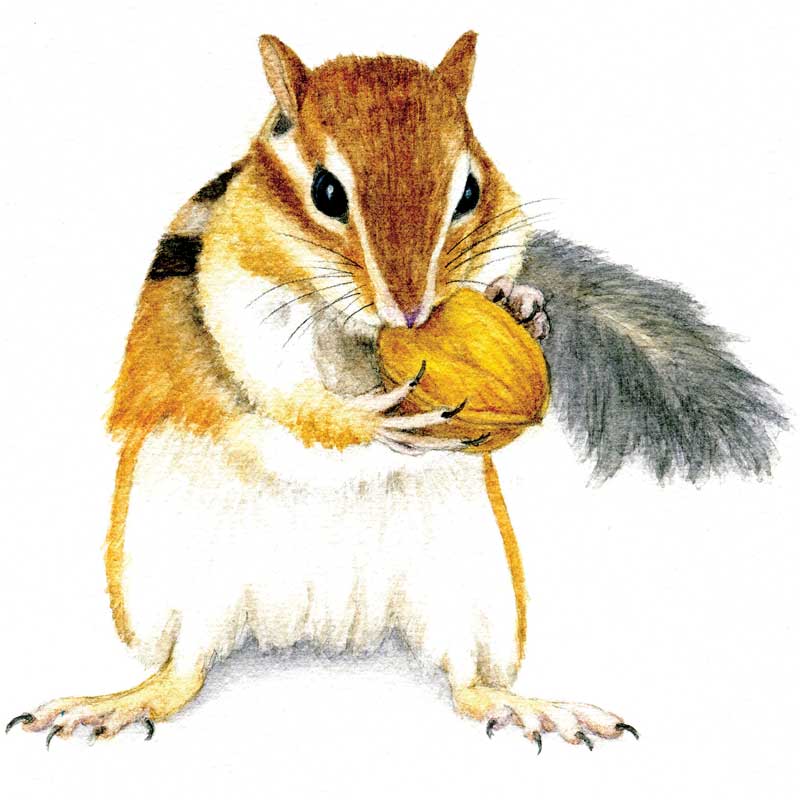Dear Friends:
One of the delights of March is more light. Not only that, but the sun is climbing higher in the sky each day so those radiant sunbeams carry more warmth, bringing the gospel of spring to the waiting plant and animal kingdoms, and stirring our light-starved souls with new dreams and visions of seasons to come: What will I plant in the garden this year? When will we go to camp? Will we swim at the lake? When will we get out on the water? They say that if March comes in like a lion, it will go out like a lamb. And sometimes it does. But sometimes it comes in like a lion and goes out like a lion, and sometimes it comes in like a lamb and goes out like a lamb. This tells us less about the weather than it does about our human need to put things in some sort of order. We like order and predictability in an unpredictable world. So March returns again, and our hearts are glad.

Natural events, March
We rise this week to the thrilling trill of a bright red male cardinal staking out his turf and alerting the ladies that he is ready. A couple of days before that we heard several mourning doves hooting to each other in the woods along the road. Next it was the spring song of the chickadee and the hammering and calling of the pileated woodpeckers, joined by the loud shouts of the blue jays rocketing from tree to tree. We all know that winter does not last forever, and that spring does not skip its turn; yet the shouts and songs of the birds set to music what we feel in our hearts, and they in their hearts. The chorus of spring has begun.

Field and forest report
We’ll take a moment here to honor the most fearless and indomitable spirit of the past winter and every winter: the Black-capped Chickadee, whose cheerful calls can be heard no matter what the weather. They’re the first birds to the feeder in the morning and the last ones at night, come rain, sleet, snow, or ice. Always dependable, always chatty, always upbeat, they will eat right out of your hand, and best of all, they set a sterling standard of industry and goodwill for the rest of us to follow. Now, the sound of their spring song, “Dee dee, Dee dee,” can be heard tumbling from the tops of hemlocks and cedars and birches—always putting a smile on our face and a spring in our step even in the chilly mud.
As soon as the ground can be worked Maine farmers and gardeners will be on it, cleaning up the garden or the orchard or the wood lot, and getting ready for the arrival of meteorological spring. All the pent-up energy of the winter months and all the craving for dirt will come pouring forth as brush is burned, compost piles are turned over and spread, seaweed is gathered by the shore, and the gardener on her knees squeezes a handful of soil.
Saltwater report
The water in the bay looks like hammered stainless steel these days, reflecting the metallic gray of the sky, but every now and then a bright sun will transform the bay to cobalt blue, set with millions of glittering diamonds almost too bright for the eye to behold.

Natural events, April
According to the Old Farmer’s Almanac, chipmunks emerged from their hibernation this past week. How the Old Farmer knows that is beyond me. You may, however, expect olfactory indications of skunk activity on warmer days. Meanwhile, Maine’s totemic black bear slumbers away for a few more weeks. Winter is a time of death for deer, moose, fox, and many other critters that stay active all through the cold season. But not so for bears; they bear (!) their young in the den in January; and usually in April, the cubs are ready to rock and roll.
Rank opinion
Hibernation is a successful survival strategy for those creatures that can manage it, including several northern mammals… and some of our neighbors, too. Little or no food is needed; there is virtually no danger from predators, and just imagine the epic dreams they must have! Sounds a little like a quarantine lockdown.
Meanwhile, we are inspired by thousands upon thousands of retired doctors and nurses who have responded to the calls to come to the aid of states hard-hit by the dangerous Covid-19 virus, setting aside their own time of rest. This is true patriotism, true heroism, and true humanity.

More natural events
In the old days, Mainers had root cellars to store certain foodstuffs over the winter. In a root cellar you might store your potatoes, turnips, carrots, apples, winter squash, and preserves to keep them from freezing during the coldest months. As we know, many plants have root cellars, too, where they keep stored up food for the winter and early spring. Most notable these days are those with bulbs, corms, and tubers, which are enlarged stems or roots. Many of these plants bloom early because they have enough food stored away in their root cellars to start off spring with a bang. We see them now as snowdrops, Scilla, crocus and daffodils bloom, with tulips coming right along behind, soon to be followed by iris and other early bloomers—all plants with their own root cellars.
Field and forest report
Maple sugar time is here and the sweet smell of sap steaming and birch wood burning fills the air with its healing perfume. The vital fluids that prevent the tree from freezing to death and keep it alive and healthy throughout the winter are distilled down by the woodsman into an ambrosial nectar that restores the vigor and timbre of winter-weary Mainers when poured on snow to make sugar candy or ladled onto a stack of pancakes or waffles to fortify us for a day out of doors. What was fuel for the forest is now fuel for the forester. And doesn’t that taste some good?
Pussy willows are turning golden along the banks of babbling brooks. Colt’s foot is in bloom along roadsides, and red maples are starting to show some color in their buds. Crows are gathering nesting materials, goldfinches are turning yellow, spring peepers are starting their chorus, and ospreys are returning.
It’s not all that different from what happens every year at this time, and it still has the power to warm our hearts a little when we see it all come around once again.
Rank opinion
Some might ask what all this lovely “nature talk” about sun and wind and stars and creatures has to do with the real world today, the world of social media, fashion, sports, terrorism, politics, and pandemics. But, wait: Nature IS the real world, and always has been. It is presented to us directly with no digital enhancement, no editing or interpretation, no commentary or spin, no judgment or moralizing or campaigning. Nature is the plain truth, right outside our door, the source of all that is or was or will be, in which we live and move and have our being. It is where we’re from, it is what we are, it is where we are going. Nature feeds our bodies and nourishes our souls from morning till night. There is nothing in the world more real and it’s everywhere and it’s free to all.
Seedpod to carry around with you
From Eleanor Roosevelt 1884-1962:
You gain strength, courage, and confidence by every experience in which you really stop to look fear in the face. You are able to say to yourself. “I lived through this... I can take the next thing that comes along.”
That’s the Almanack for this time. But don’t take it from us—we’re no experts. Go out and see for yourself.
Yr. mst. humble & obd’nt servant,
Rob McCall
✮
Rob McCall lives in Brooklin, Maine. This almanack is excerpted from his radio show on WERU FM, which can be streamed on weru.org. Email Rob at awanadjoalmanack@gmail.com.






